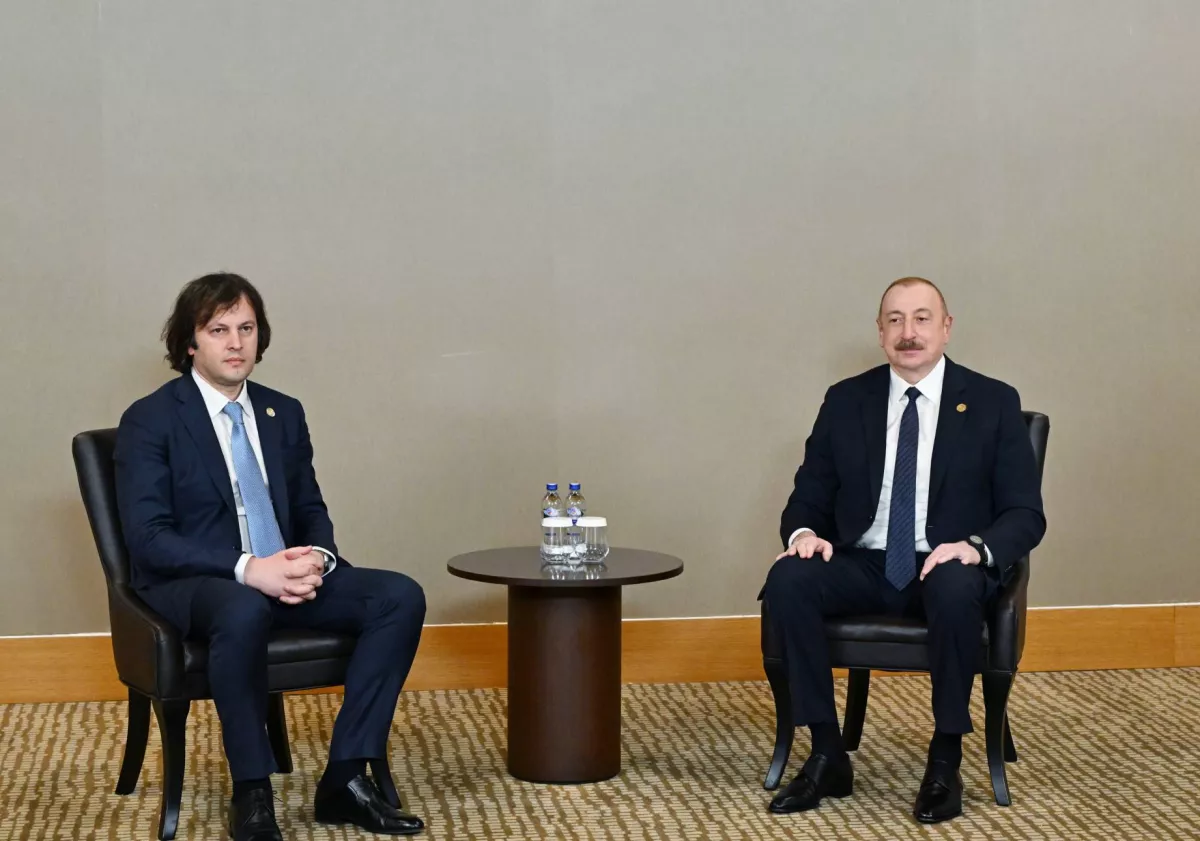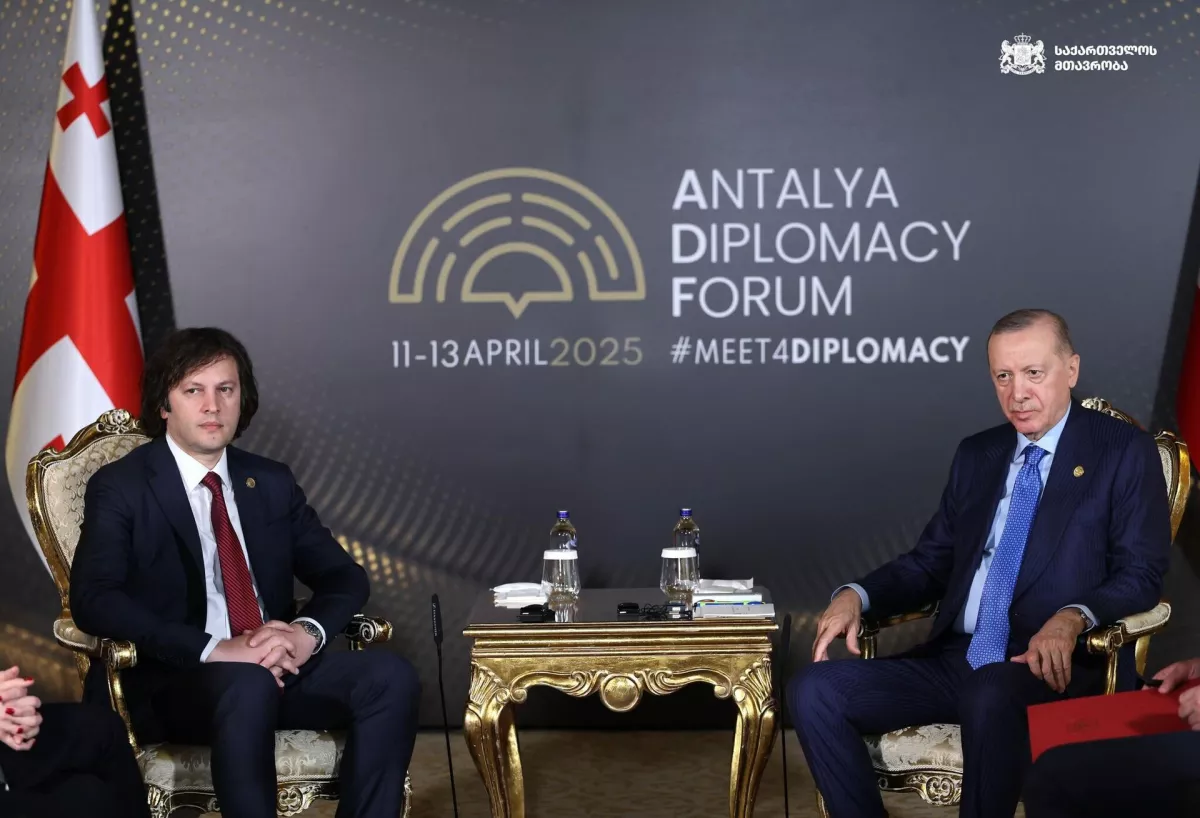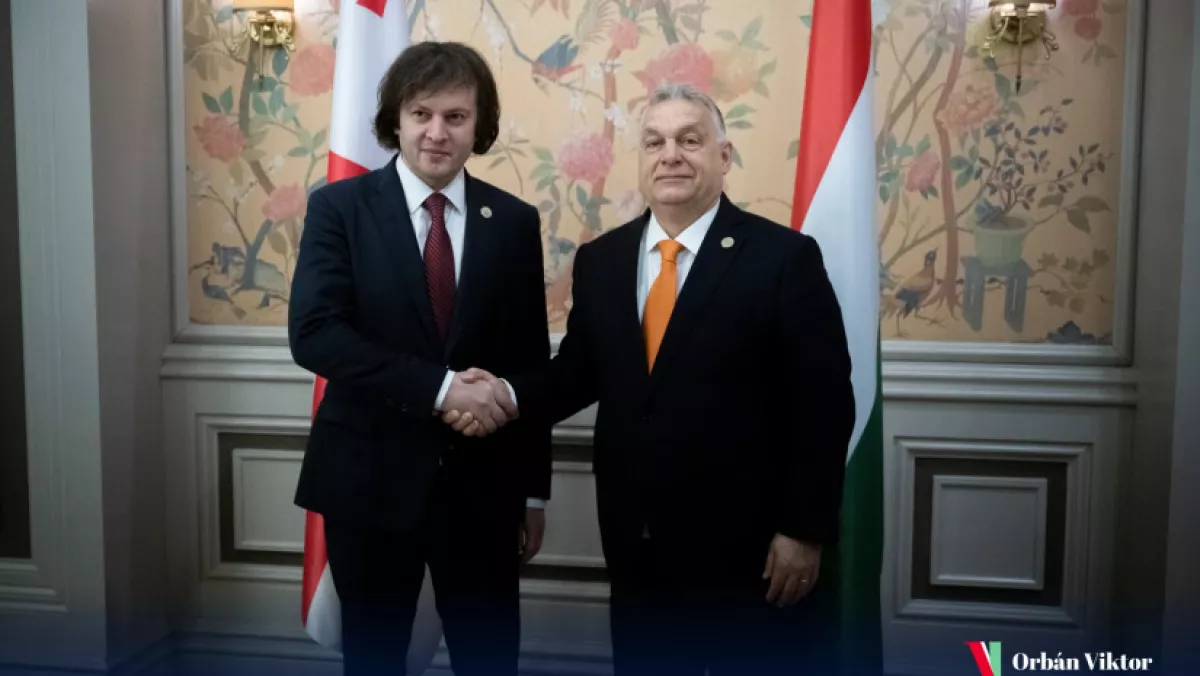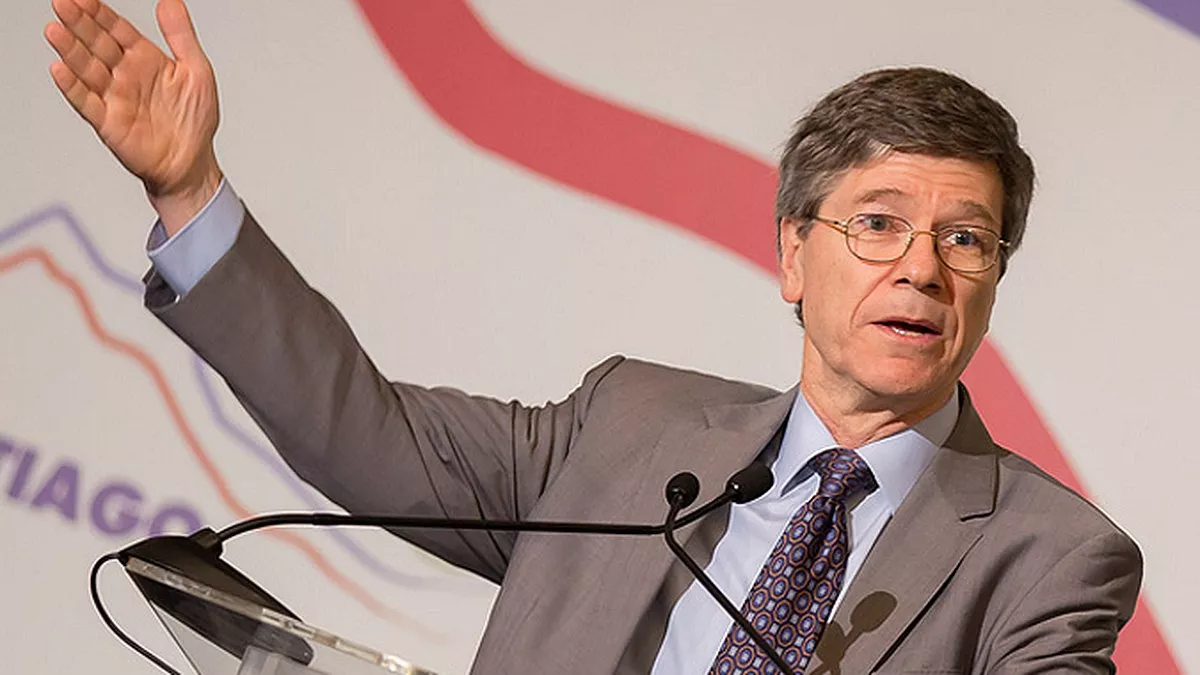Antalya Diplomacy Forum and Georgia's closest friends No more interference, only equal partnerships
The 4th Antalya Diplomacy Forum, held under the patronage of Turkish President Recep Tayyip Erdoğan, was of great importance for Tbilisi. The Georgian authorities, who received public support in last autumn’s parliamentary elections, recently had to confront attempts by external forces to first stage a coup d’état and then orchestrate a so-called “international isolation.” The forum in Antalya demonstrated that the “isolation” of Georgia is nothing more than a futile wish of its adversaries.
In today’s world, a small country like Georgia faces not only serious difficulties in confronting global challenges, but also in defending its national sovereignty against those geopolitical players who continue to think in neo-colonial terms. Yet Georgia succeeded in doing so throughout 2024 and into early 2025. This was despite unprecedented attempts at destabilisation and external interference, primarily from the leadership of the EU, France, and their chorus of “minor European cheerleaders” such as the Baltic states. The authorities of these smaller countries long ago surrendered their own national sovereignty to Brussels’ bureaucracy, and now seem intent on encouraging other post-Soviet states to follow the same path.
However, Georgia’s ability to resist external pressure and interference would have been far more difficult without the help and support of friendly nations. Of particular importance to Georgia is the fact that two of these allies — Azerbaijan and Türkiye — are both immediate neighbours and key economic partners. Georgia also has a friendly country within the European camp, albeit one with which it does not share a border, but which maintains strong and growing ties with Türkiye, Azerbaijan, and the Turkic world — Hungary. It is symbolic that Antalya became the venue for meetings between Georgian Prime Minister Irakli Kobakhidze and the leaders of all three of Georgia’s closest allies — Azerbaijan, Türkiye, and Hungary.

At the very start of the Antalya Diplomacy Forum on 11 April 2025, Georgian Prime Minister Irakli Kobakhidze met with Azerbaijani President Ilham Aliyev. During the meeting, both sides emphasised the historical nature of the friendship and strategic partnership between Azerbaijan and Georgia. Since the parliamentary elections in Georgia in the autumn of 2024, Kobakhidze has already met with the Azerbaijani president four times. It was also announced that Georgian President Mikheil Kavelashvili will pay an official visit to Baku on 15–16 April 2025 — his first foreign visit as head of state. All of this underscores how vital Azerbaijan’s support is for the Georgian leadership during this challenging period.
Azerbaijan fully supports Georgia’s current sovereign course and strongly opposes any external interference in the country’s political affairs. Recently, during his speech at an international forum hosted by ADA University, Ilham Aliyev explicitly condemned the European Union and the Council of Europe’s “colonial” attitude toward Georgia. Irakli Kobakhidze expressed his gratitude to Aliyev for Azerbaijan’s comprehensive support for Georgia’s sovereignty. In turn, Ilham Aliyev, highlighting the importance of unity and solidarity between Azerbaijan and Georgia in today’s increasingly turbulent world, stressed that regional issues in the South Caucasus should be resolved by the countries of the region themselves.
Speaking at the 4th Antalya Diplomacy Forum, Georgian Prime Minister Irakli Kobakhidze placed special emphasis on Türkiye’s role as a reliable and strategic ally of his country. He highlighted the importance of ensuring peace and stability in the South Caucasus and acknowledged Ankara’s active role in this process. “We are very glad to be working together with Türkiye, which is also a country with a peace-oriented vision. Looking ahead, I want to emphasize that we will pursue our peace vision and focus on the country’s development, particularly economic development,” Kobakhidze stated.

On the sidelines of the forum, the Georgian Prime Minister also held a meeting with Turkish President Recep Tayyip Erdoğan. The discussions focused on the high level of strategic partnership between the two countries and their successful cooperation across various sectors. Current developments in the Middle East were also addressed, along with the particular importance of ensuring peace and stability in the South Caucasus. Türkiye was recognised as Georgia’s largest trading partner, and both sides expressed hope that bilateral trade would reach $5 billion in 2025. Prime Minister Kobakhidze extended an official invitation to President Erdoğan to visit Georgia.
A meeting also took place in Antalya between Georgian Prime Minister Irakli Kobakhidze and Hungarian Prime Minister Viktor Orbán, during which both sides underscored the “strategic partnership between the two countries, built on shared cultural and Christian heritage.” The talks also touched on issues such as European integration, energy cooperation, and the importance of maintaining regional stability.
“It was a pleasure to have a discussion with Prime Minister Irakli Kobakhidze of Georgia in Antalya today. Hungary and Georgia share a strong strategic partnership, grounded in our shared cultural and Christian heritage. Our cooperation on energy diversification and regional stability continues to grow. We value our friendship with Georgia and remain dedicated to strengthening our collaboration,” Viktor Orbán wrote on social platform X.

In essence, a strategic geopolitical alliance among four nations — Türkiye, Azerbaijan, Hungary, and Georgia — began to take shape in Antalya. Considering that the motto of the Antalya Diplomacy Forum was “Reclaiming Diplomacy in a Fragmented World,” it perfectly aligns with the emerging convergence between these countries.
Friendly relations with Tbilisi, Budapest, and Baku are also of strategic importance for Ankara. Türkiye’s opponents are finding it increasingly difficult to wage an information and propaganda war against it using tired and misleading clichés that were once widely employed to build anti-Turkish coalitions — such as the notion of an alleged “Islamic expansion.” In the context of this emerging alliance, both Hungary and Georgia are Christian countries that uphold traditional Christian values. Hungary represents the Catholic-Protestant sphere of Europe, while Georgia belongs to the Orthodox Christian tradition.
It is also significant that Türkiye, Azerbaijan, Hungary, and Georgia are gaining an increasing number of influential supporters and friends beyond their immediate region — including individuals with considerable weight in global geopolitics. Among them is Professor Jeffrey Sachs, Director of the Center for Sustainable Development at Columbia University, whose advice was instrumental in Poland’s successful post-socialist economic reforms. In Antalya, Sachs expressed clear support for the Georgian authorities. Speaking to Georgian journalists, he firmly stated that European and American politicians should stay out of Georgian politics, warning that external interference and influence would bring no benefit.

“Jeffrey Sachs is a true intellectual, and he is independent — he conducts his own analysis of the processes affecting the development of our country, which is why his assessments are objective,” Georgian Prime Minister Irakli Kobakhidze told Georgian journalists in Antalya. “Jeffrey Sachs respects the independence and sovereignty of our country and emphasises that politicians should take the same approach. This is also our message — everyone must respect Georgia’s sovereignty, independence, and the peace and security of our country. These are our key national interests. Above all, they are the interests of the Georgian people, and everyone must take them into account.”
Meanwhile, intellectuals in the West are beginning to take Georgia’s sovereign policy — as well as that of its allied states — increasingly seriously. The “liberal global project,” once championed by the Democratic Party in the United States and left-liberal forces in the European Union, has reached an impasse, having failed to resolve conflicts, stop wars, or effectively respond to global challenges. In this context, countries that have resisted the imposition of a liberal agenda are becoming increasingly appealing examples.
A united Europe may, sooner or later, shift toward constructive cooperation with Georgia — without the previous ultimatums and overt interference. A glimmer of hope in this direction came during the Antalya Diplomacy Forum, where Georgian Prime Minister Irakli Kobakhidze met with Secretary General of the Council of Europe Alain Berset. Following the meeting, Kobakhidze wrote on social media: “During the meeting, we reiterated our commitment to further advancing our collaboration and maintaining an active dialogue.”
Although it is still too early to speak of a full normalisation of relations between Georgia and the EU, it is symbolic that, since early April 2025, European institutions have noticeably “stopped paying attention” to Georgia’s opposition and to former President Salome Zurabishvili, who continues to claim “legitimacy.”
Vladimir Tskhvediani, Georgia, exclusively for Caliber.Az








